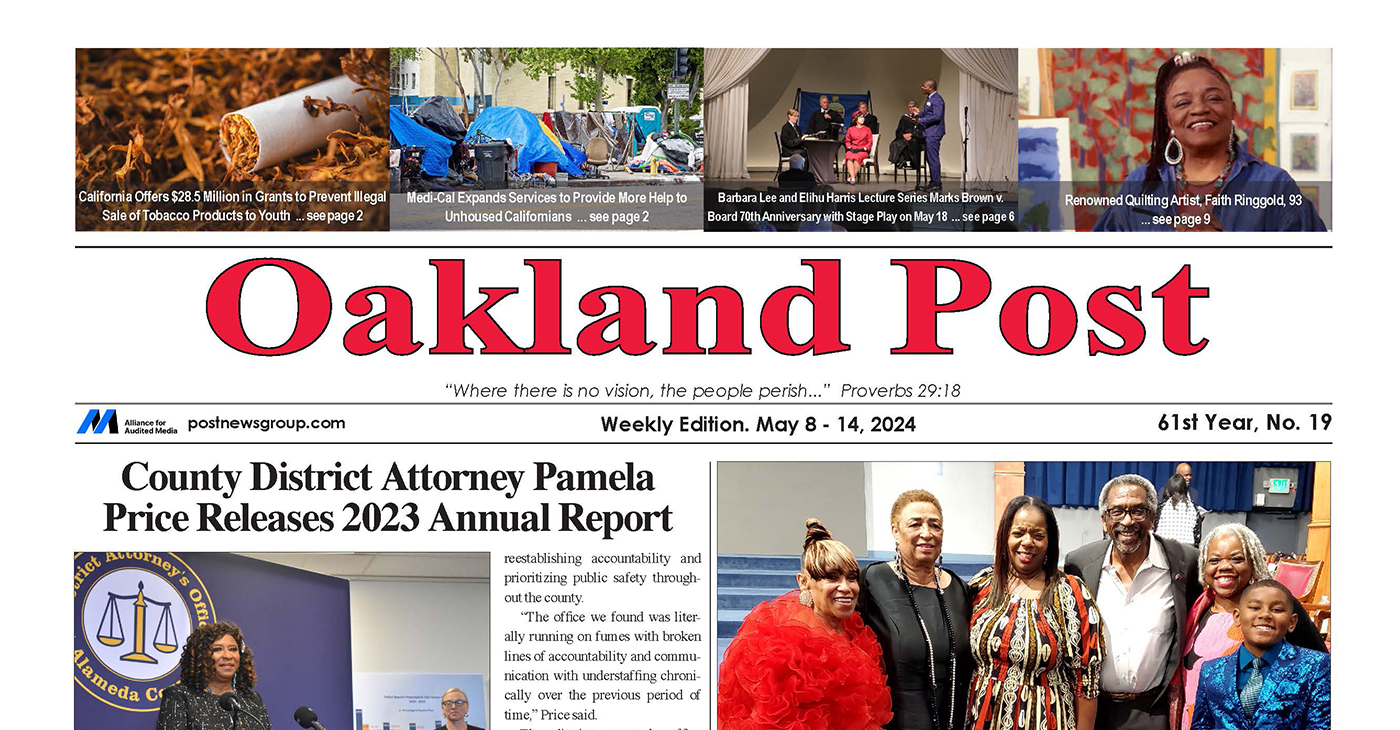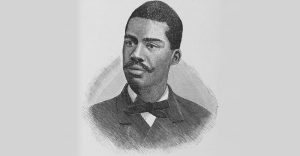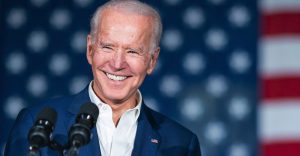Business
After Trade Deal, Obama Seeks to Repair Rift with Labor

President Barack Obama runs up the stairs to board Air Force One, Thursday, July 2, 2015, at Andrews Air Force Base, Md., en route to La Crosse, Wis., where he is to speak at the University of Wisconsin at La Crosse about economy and to promote a proposed Labor Department rule that would make more workers eligible for overtime. (AP Photo/Carolyn Kaster)
JIM KUHNHENN, Associated Press
LA CROSSE, Wis. (AP) — Nudging his way into presidential politics, President Barack Obama traveled to Wisconsin on Thursday to draw contrasts with Republicans on economic policy just as the state’s governor, Scott Walker, was filing paperwork to enter the GOP presidential primary.
Walker, who is expected to announce his candidacy July 13, greeted Obama at the La Crosse airport with a handshake and a smile. He earlier posted an opinion piece criticizing Obama’s economic policies: “Bright spots in the Obama economy are few and far between,” Walker wrote.
For Obama, the visit is part repair mission after his push for trade legislation ruptured relations between the White House and organized labor.
Within hours of business leaders joining him at a White House signing ceremony for the trade bill, Obama announced a proposed Labor Department rule that would make more workers eligible for overtime. Just like that, the tables were turned — labor praised the move, and business leaders decried it.
Obama was in Wisconsin to promote the overtime plan in the home district of Rep. Ron Kind, one of the 28 House Democrats who broke party ranks to side with the president and grant him broad trade negotiating powers. Just before he left Washington, the Labor Department reported a solid addition of 223,000 jobs in June, though wage growth stalled.
“It is impossible to insulate the U.S. economy and U.S. workers from the broader forces of globalization,” White House spokesman Josh Earnest said Wednesday. “While the president and Congressman Kind have a difference of opinion with many leaders of organized labor about this approach, the fact is when it comes to the value of looking out for middle-class families, the leaders of organized labor and the Obama administration agree just about every time.”
It’s a message the White House hopes resonates with union members and mends a battered relationship between pro-trade Democrats and labor. Union leaders, led by AFL-CIO President Richard Trumka, fought aggressively against the trade legislation and vowed to pull their support for Democrats who sided with Obama.
That legislation, supported by a majority of Republicans, gave Obama “fast track” trade negotiating authority, which could clear the path for him to complete a 12-nation Pacific Rim trade deal. If finalized, Congress would have the right to approve or reject the agreement, but not change or delay it. The deal could be completed in time for Congress to act before the end of the year, giving labor yet another opportunity to flex its muscle over its fear that a trade deal could cost American jobs.
“The trade fight is not over,” said Bill Samuel, the AFL-CIO’s legislative director.
Still, the White House and unions have found plenty of common cause in other areas. Obama has advocated for an increase in the federal minimum wage and for paid family and medical leave.
The overtime rule that Obama announced Monday had been long anticipated. It would make up to 5 million more people eligible for overtime by more than doubling the earnings threshold under which salaried workers are entitled to overtime.
But the administration waited until after the trade legislation passed to propose it. The timing avoided what could have been an awkward and perhaps damaging confrontation with the business community while it was promoting the president’s trade agenda.
Labor is keeping the issues separate.
“We intend to work with the administration until their last day in office,” Samuel said. “We have to do more to address wage inequality than just the overtime rule, but it’s a key start. The trade agenda pushes us in the other direction.”
The U.S. Chamber of Commerce, whose president, Tom Donohue, attended Monday’s bill signing ceremony, issued a blistering critique of the overtime rule, saying it would result in workers losing benefits, flexibility and advancement opportunities.
“This change is another example of the administration being completely divorced from reality and adding more burdens to employers and expecting them to just absorb the impact,” said Randy Johnson, a chamber senior vice president.
Other business groups, whose membership may not be as affected by the overtime provision, took a more measured approach.
Bill Miller, a senior vice president at the Business Roundtable, said his group has “long advocated modernization, and we intend to be part of the rule-making to make it as nondestructive as possible.”
Still, trade is a far more defining policy issue.
Miller said it was “the major centerpiece” of the Obama administration’s business agenda.
“The cooperation, the collaboration and the execution was done in a way that we’re very hopeful is the blueprint for going forward in the last 18 months of the administration,” he said.
Copyright 2015 The Associated Press. All rights reserved. This material may not be published, broadcast, rewritten or redistributed.
Activism
Oakland Post: Week of May 8 – 14, 2024
The printed Weekly Edition of the Oakland Post: Week of May May 8 – 14, 2024

To enlarge your view of this issue, use the slider, magnifying glass icon or full page icon in the lower right corner of the browser window. ![]()
Bay Area
Mayor Breed Proposes Waiving City Fees for Night Markets, Block Parties, Farmers’ Markets, Other Outdoor Community Events
Mayor London N. Breed introduced legislation on April 26 to encourage and expand outdoor community events. The first will waive City fees for certain events, making them less costly to produce. The second will simplify the health permitting for special event food vendors through the creation of an annual permit. Both pieces of legislation are part of the Mayor’s broader initiative to bring vibrancy and entertainment to San Francisco’s public right of ways and spaces.

Mayor’s Press Office
Mayor London N. Breed introduced legislation on April 26 to encourage and expand outdoor community events.
The first will waive City fees for certain events, making them less costly to produce. The second will simplify the health permitting for special event food vendors through the creation of an annual permit. Both pieces of legislation are part of the Mayor’s broader initiative to bring vibrancy and entertainment to San Francisco’s public right of ways and spaces.
Outdoor community events are integral to San Francisco’s vibrant culture and sense of community. These events include night markets, neighborhood block parties and farmers markets, and bolster the City’s economy by supporting local businesses and attracting tourists eager to experience San Francisco’s unique charm and food scene.
They offer residents, workers and visitors, opportunities to engage with local artists, musicians, and food vendors while enjoying the San Francisco’s stunning outdoor spaces and commercial corridors.
The legislation will allow for more and new community gatherings and for local food vendors to benefit from the City’s revitalization.
“San Francisco is alive when our streets are filled with festivals, markets, and community events,” said Breed. “As a city we can cut fees and streamline rules so our communities can bring joy and excitement into our streets and help revitalize San Francisco.”
Fee Waiver Legislation
The events that can take advantage of the new fee waivers are those that are free and open to the public, occupy three or fewer city blocks, take place between 8 a.m. and 10 p.m., and have the appropriate permitting from the ISCOTT and the Entertainment Commission.
The applicant must be a San Francisco based non-profit, small business, Community Benefit District, Business Improvement District, or a neighborhood or merchant association. Fees eligible for waiver include any application, permit, and inspection/staffing fees from San Francisco Municipal Transportation Agency, Department of Public Health, Fire Department, Entertainment Commission, and Police Department.
Currently, it can cost roughly anywhere between $500-$10,000 to obtain permits for organized events or fairs, depending on its size and scope. Organizations and businesses are limited to a maximum of 12 events in one calendar year for which they can receive these fee waivers.
Food Vendor Streamlining Legislation
The second piece of legislation introduced will help special event food vendors easily participate in multiple events throughout the year with a new, cost-effective annual food permit. Food vendors who participate in multiple events at multiple locations throughout the year will no longer need to obtain a separate permit for each event. Instead, special event food vendors will be able to apply and pay for a single annual permit all at once.
“Many successful food businesses either begin as pop-up vendors or participate in special events to grow their business,” says Katy Tang, Director of the Office of Small Business. “Giving them the option for an annual special event food permit saves them time and money.”
Currently, food vendors are required to get a Temporary Food Facility (TFF) permit from the Department of Public Health (DPH) in order to participate in a special event, among permits from other departments.
Currently, each special event requires a new permit from DPH ranging from $124-$244, depending on the type of food being prepared and sold. Last year, DPH issued over 1,500 individual TFF permits. With the new annual permit, food vendors selling at more than four to six events each year will benefit from hundreds of dollars in savings and time saved from fewer bureaucratic processes.
“This legislation is a step in the right direction to make it easier for food vendors like me to participate in citywide events,” said Dontaye Ball, owner of Gumbo Social. “It saves on time, money and makes it more effective. It also creates a level of equity.”
Bay Area
Faces Around the Bay: Sidney Carey
Sidney Carey was born in Dallas, Texas. He moved with his family to West Oakland as a baby. His sister is deceased; one brother lives in Oakland. Carey was the Choir Director at Trinity Missionary Baptist Church for 18 years.

By Barbara Fluhrer
Sidney Carey was born in Dallas, Texas. He moved with his family to West Oakland as a baby. His sister is deceased; one brother lives in Oakland.
Carey was the Choir Director at Trinity Missionary Baptist Church for 18 years.
He graduated from McClymonds High with a scholarship in cosmetology and was the first African American to complete a nine-month course at the first Black Beauty School in Oakland: Charm Beauty College.
He earned his License, and then attended U.C., earning a secondary teaching credential. With his Instructors License, he went on to teach at Laney College, San Mateo College, Skyline and Universal Beauty College in Pinole, among others.
Carey was the first African American hair stylist at Joseph and I. Magnin department store in Oakland and in San Francisco, where he managed the hair stylist department, Shear Heaven.
In 2009, he quit teaching and was diagnosed with Congestive Heart Failure. He was 60 and “too old for a heart transplant”. His doctors at California Pacific Medical Center (CPMC) went to court and fought successfully for his right to receive a transplant. One day, he received a call from CPMC, “Be here in one hour.” He underwent a transplant with a heart from a 25-year- old man in Vienna, Austria
Two years later, Carey resumed teaching at Laney College, finally retiring in 2012.
Now, he’s slowed down and comfortable in a Senior Residence in Berkeley, but still manages to fit his 6/4” frame in his 2002 Toyota and drive to family gatherings in Oakland and San Leandro and an occasional Four Seasons Arts concert.
He does his own shopping and cooking and uses Para Transit to keep constant doctor appointments while keeping up with anti-rejection meds. He often travels with doctors as a model of a successful heart-transplant plant recipient: 14 years.
Carey says, “I’m blessed” and, to the youth, “Don’t give up on your dreams!”
-

 City Government2 weeks ago
City Government2 weeks agoCourt Throws Out Law That Allowed Californians to Build Duplexes, Triplexes and RDUs on Their Properties
-

 Community4 weeks ago
Community4 weeks agoFinancial Assistance Bill for Descendants of Enslaved Persons to Help Them Purchase, Own, or Maintain a Home
-

 Activism3 weeks ago
Activism3 weeks agoOakland Post: Week of April 24 – 30, 2024
-

 Business4 weeks ago
Business4 weeks agoV.P. Kamala Harris: Americans With Criminal Records Will Soon Be Eligible for SBA Loans
-

 Community4 weeks ago
Community4 weeks agoOakland WNBA Player to be Inducted Into Hall of Fame
-

 Community4 weeks ago
Community4 weeks agoAG Bonta Says Oakland School Leaders Should Comply with State Laws to Avoid ‘Disparate Harm’ When Closing or Merging Schools
-

 Community3 weeks ago
Community3 weeks agoRichmond Nonprofit Helps Ex-Felons Get Back on Their Feet
-

 Community3 weeks ago
Community3 weeks agoRPAL to Rename Technology Center for Retired Police Captain Arthur Lee Johnson












































